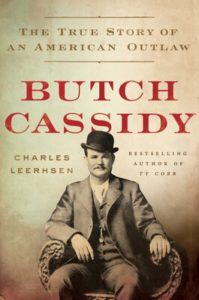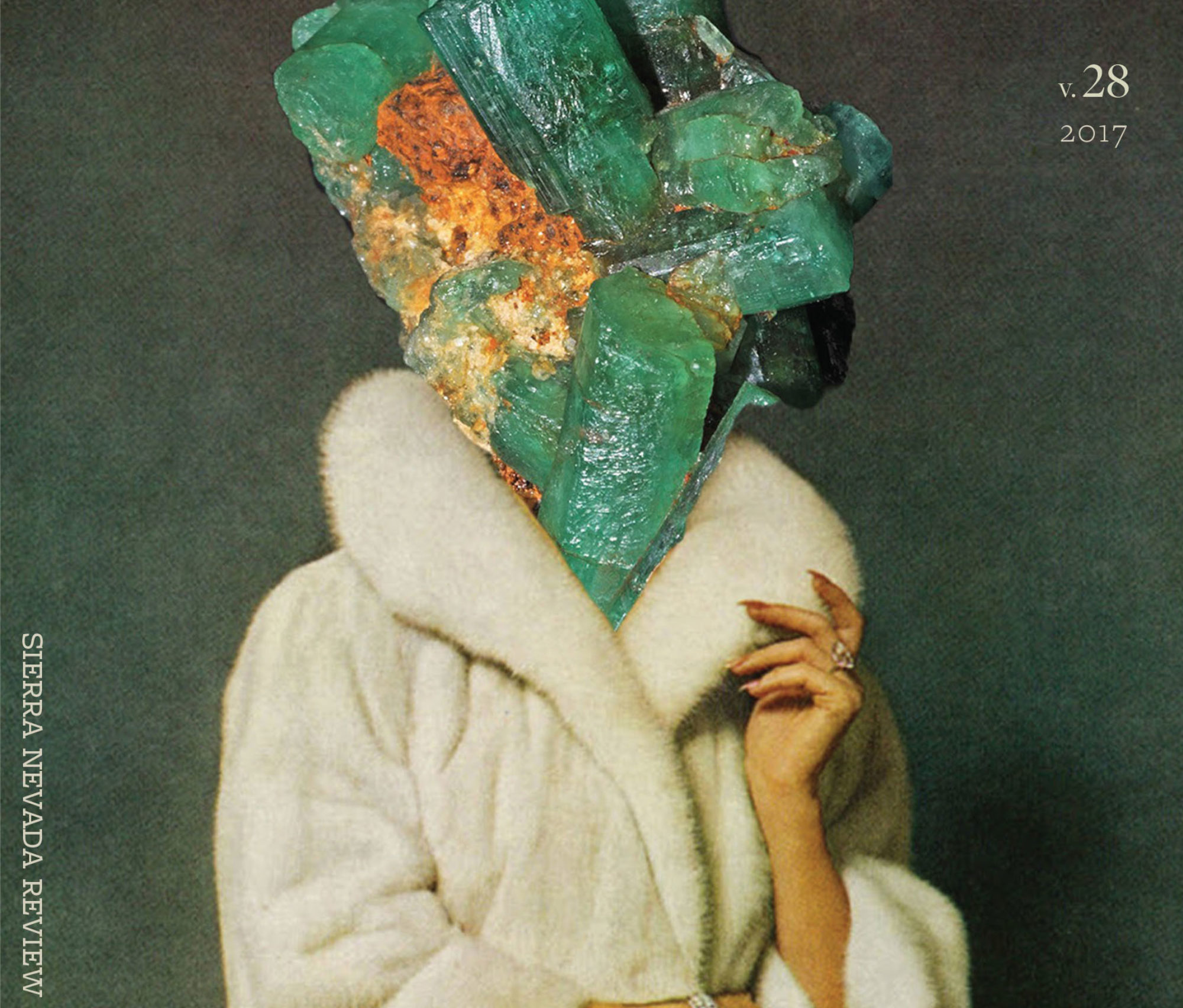 2020
2020
Nonfiction
$28; 320
Simon & Schuster
ISBN: 9781501117480
Charles Leerhsen’s Butch Cassidy: The True Story of an American Outlaw
by Scott Bradfield
This charming, unpretentious biography of Butch Cassidy’s life shows that at least several events in the charming, unpretentious 1969 film (scripted by the great William Goldman) were fairly accurate. For example, Butch was reportedly charismatic, blue-eyed and handsome, if not exactly in a Paul Newman-ish sort of way; the Sundance Kid (alias of Harry Longabaugh, who committed some early crimes in Sundance, Wyoming) was blond and surly—much like a typical sixties Robert Redford performance; and the third wheel on the relationship, Ethel Place (often mis-referred to as Etta, and played by Samantha Ross) was both beautiful and glamorous. Born and raised in Ireland, Ethel originally came to America searching for her errant aristocratic father [1365], and one typical contemporary described her as “good-looking, a good rider, and an expert with a rifle” [3129].
Even the movie’s second-most memorable scene—depicting the robbery of the No. 1 Overland Limited near Wilcox Station, Wyoming on 2 June 1899 [2647]—resounds with verisimilitude, right down to the stroppy clerk (memorably played by the great character actor, George Furth) refusing to open his car door to the “Hole-in-the-wall gang.” And so they blow open the car with him in it. (“I work for Mr E.H. Harriman and he entrusted me to—” Boom.) The Union Pacific’s owner, E. H. Harriman, even organized a “mobile posse” to ride along in a separate train—but they were far from the “super posse” devised by Goldman. Rather it was the Pinkerton Detective Agency who vigorously pursued Butch and his gang—so much so that many years later they were still attributing crimes to Butch that he never committed.
But unlike a good script, Bitch’s life lacked compression. Born Robert Leroy Parker to a Mormon family in Beaver, Utah (his parents didn’t practice polygamy, but still managed to produce thirteen children), he spent his youth performing conventional jobs around ranches, horse-stables, and cow-herds; and as he grew older, his spontaneous desire for wild travel and even wilder friends led him to occasional bursts of cattle-rustling, horse-stealing, and the robbing of banks and trains. For while Butch was a dependable worker during the periods when he was dependable, there was something about dissolute living that always called him back again—especially when it came to boozing, faro-playing, girls, partying, and stealing. Then, of course, there was just the plain dumb ease of outlawry during the cattle-boom years when Wyoming and Colorado were filled with gun-and-booze-crazed cowboys. In one of Butch’s first big jobs—the payroll wagon for the Pleasant Valley Coal Company in Castle Gate, Utah—his randomly assembled “gang” could depend on the bi-weekly delivery of $8000 by two men whose pistol-hands were occupied with moneybags. And if the delivery didn’t arrive as scheduled, the company blew a loud steam whistle to let their employees (and any robbers who might be lying around) know exactly when it did [2535]. Piece of cake.
As wild west historian Dan Buck noted, “those boys may have been wild, but they surely weren’t much of a bunch” [2542.] Butch attracted lots of loose men and women who regularly entered and departed his orbit, and those who lived to recall Butch for the public record (they tell us he was fond of Tiffany watches, dandy-ish duds, bowler hats and clean shaves) usually recalled him fondly. One former gang member called him “the wisest of all the outlaws I knew,” and even a Wyoming judge who convicted him (and later wrote a letter to the governor seeking his pardon), described him as “a brave, daring fellow well calculated to be a leader” [227]. And while it’s not entirely certain how many banks and trains Butch robbed, his haulings were often munificent—when he and Sundance opened their first bank account in Bolivia in 1900, their savings amounted to a quarter million dollars in today’s currency. Yet he was never known to take another life. As one of his partners noted: “Our greatest defense was our reputation as bad men” [189.] When Butch and his men told bank tellers and train guards to “throw ‘em up,” they got throwed.
As Leerhsen argues, Butch’s popularity may have been even more effective with men than with ladies; and there exist reports that he and many of his fellow male riders—such as long-time friend and partner, Elzy Lay—may have shared a good deal of “mutual solace” [741]. In other words, if Butch’s story was dramatically filmed today it might involve a lot less Jules et Jim and a bit more Brokeback Mountain.
Nevertheless, Butch never stayed in the same place for very long; and each brief flurry of robberies was followed by longer periods of hard, relatively humble work. Butch helped out (Shane-like) on ranches; acted as a foreman on cattle-drives; and for several years before his death, established a large horse-breeding ranch in Chubut, Bolivia with Sundance and Ethel Place, where he was remembered as a clean and prosperous community-member. (“They had a washstand with a fine pitcher and basin,” one neighbor recalled, “and she put drops of perfume in the water. They set the table with a certain etiquette—napkins, china plates.”) But even after years of clean living, Butch couldn’t leave the wild life behind. “There’s no use trying to hide out and go straight,” he once said. “There’s always an informer around to bring the law on you. After you’ve started, you have to keep moving all the time and spring a holdup in some new place. That way you keep the fellows guessing.”
Eventually, Butch and Sundance relapsed into their old ways; they were spotted with a stolen mule, and surrounded by a small town mayor and his townspeople. But that’s where the similarity ends. Instead of a glamorous freeze-frame shootout, Butch privately shot his old friend in a motel room and then himself. Death didn’t scare Butch so much as being locked up.
Leerhsen’s fun, amiable new book does a concise job of sorting what little is known about Butch from all the balderdash generated over the century by dime-novels and weird-historians. (One “buff” went so far as to speculate that Butch was a “clone” who did everything from ride with Pancho Villa to teach Lawrence of Arabia “how to derail trains” [670]). But then, who needs hyper-imaginative Butch-buffs? As Leerhsen makes clear—Butch Cassidy’s real life was filled with a lot of better, wilder stories than a bunch of silly clones.
*
Scott Bradfield is a novelist, short story writer and critic, and former Professor of American Literature and Creative Writing at the University of Connecticut. Works include The History of Luminous Motion, Dazzle Resplendent: Adventures of a Misanthropic Dog, and The People Who Watched Her Pass By. Stories and reviews have appeared in Triquarterly, The Magazine of Fantasy & Science Fiction, The New York Times Book Review, The Los Angeles Times Book Review, The Baffler, and numerous “best of” anthologies. He lives in California and London.
He has stories and essays forthcoming in The Weird Fiction Review, The New Statesman, The Best From Potato Soup Journal, Delmarva Review, The Baffler, The Moth, Albedo One, The New Republic, The Los Angeles Review of Books, and Flash Fiction Magazine.
He has written several screenplays—for Universal, Sony Pictures, Roger Corman’s Concorde—New Horizons, and several independent film companies, including filmed adaptations of his short story, “The Secret Life of Houses” (for PBS) and his novel, “The History of Luminous Motion.” The short film adaptation of his story, “Greetings From Earth,” was featured at the 2007 Tribeca film festival.
In addition, he presents a weekly YouTube podcast on books entitled “Reading Great Books in the Bathtub.”
